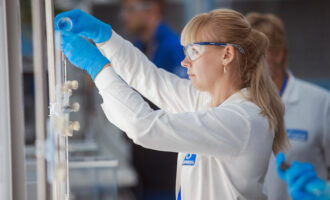
Italmatch Chemicals acquires Norwegian tech startup company Eco Inhibitors
Italmatch Chemicals Group has acquired Eco Inhibitors, a technology startup company based in Stavanger, Norway. The company was established in 2011 by Professor Malcolm Kelland, who prior to the sale to Italmatch, owned 25% of the company. Kelland’s research work in the area of hydrate inhibition chemicals used in the oil and gas industry started in 2008.
The company has gradually developed based on significant support from the industry and from public funding schemes. In 2012, the external investor Wellwork Innovation came onboard, playing an important role in the further growth of the company. Eco Inhibitors has access to, and utilises, state of the art laboratory equipment for development and testing of various products, primarily chemical solutions for the creation of a new generation of eco-friendly anti-agglomerant hydrate inhibitors for the oil and gas industry. Plugging of flow lines by gas hydrates is a costly and challenging problem for the oil and gas industry. One of the options available is the injection of anti-agglomerant (AA) low-dosage hydrate inhibitor (LDHI).
The transaction enables Italmatch Chemicals to expand its production range for the oil and gas industry through an important innovation focused on sustainability and the circular economy.
Italmatch Chemicals, based in Genoa, Italy, is a leading global specialty chemical group focused on the production and marketing of performance additives for water and process treatment, oil and gas, industrial lubricants and plastics.
The investment in such highly innovative technologies allows Italmatch Chemicals to further consolidate its focus on R&D and sustainability, thus expanding and refining the current production range, as well as reaching new high value-added market targets.
With Eco Inhibitors technologies, Italmatch Chemicals will be able to manufacture and commercialize, through its business unit Advanced Water Solutions, three classes of Low-Dosage Hydrate Inhibitors (LDHIs) that can help optimize flow assurance strategies for oil and gas deepwater productions.
“In our main areas of activity, our focus on innovation is driving the development of a large and long-term pipeline thanks to internal and external contributions which lead to the discovery of new technologies for the creation of new classes of chemical products. With Eco Inhibitors knowhow, we are proud to present to the market products with high environmental compatibility, in particular, a class of inhibitors derived from recovered salmon waste that represents a perfect example of circular economy. The first game-changing green anti-agglomerant is the cutting edge technology that we are going to industrialize,” said Sergio Iorio, CEO of Italmatch Chemicals Group.
Maurizio Turci, general manager, Corporate, and CFO of Italmatch Chemicals Group said: “The transaction falls into Italmatch Chemicals Group’s growth strategy and global geo-coverage. From an industrial point of view, this acquisition may have a positive impact on medium/long-term sustainability for the results of the Advanced Water Solutions Business Unit. ”
Founded in 1997, Italmatch Chemicals was acquired by Bain Capital Private Equity, a leading global private investment firm, in October 2018. Italmatch specializes in performance additives for water treatment, oil and gas, lubricants and plastics, and boasts a wide product range able to fulfill the requirements of the most demanding applications, including personal care. The group generates approximately EUR600 million (USD672 million) in pro forma sales revenue and operates through seven manufacturing plants in Europe (Italy, Spain, Germany and UK), five in Asia Pacific (China, Japan and India), five in North America (U.S.A.) and sales/distribution subsidiaries in Brazil, Belgium, China, Japan, India, Poland, Singapore and the U.S.A. It employs more than 900 workers.









